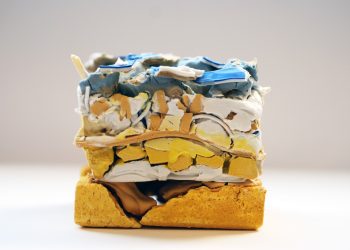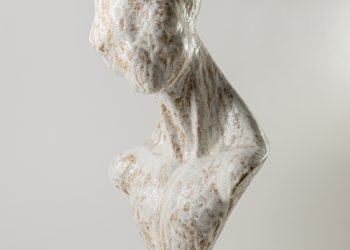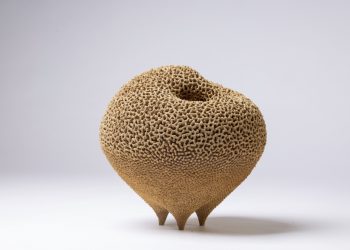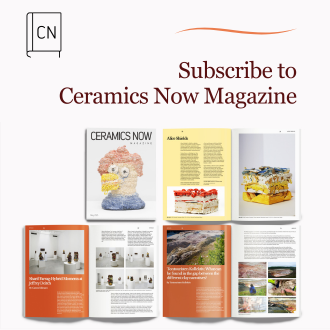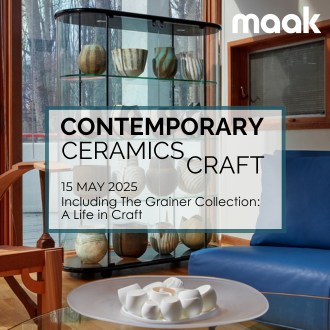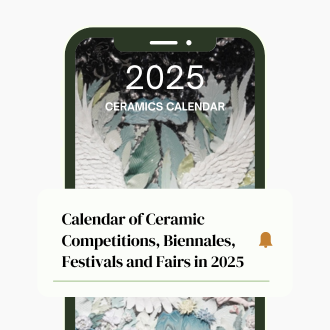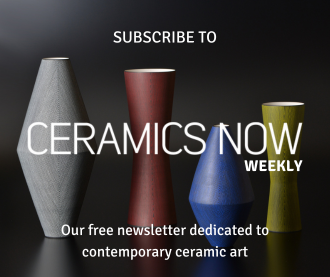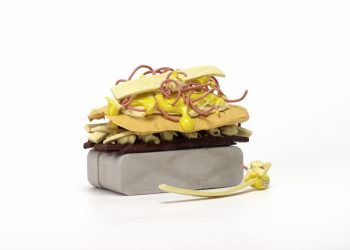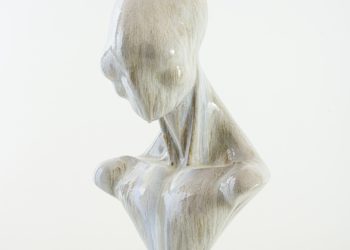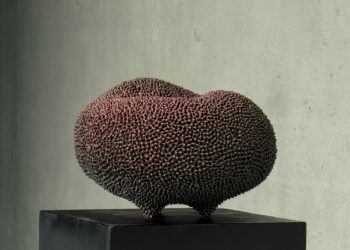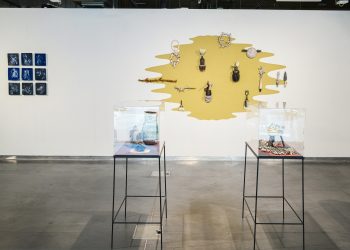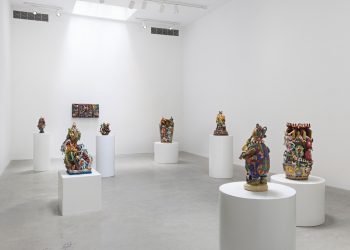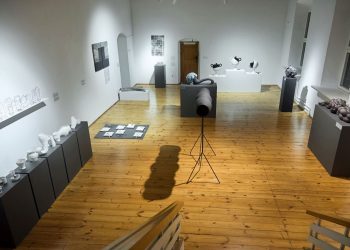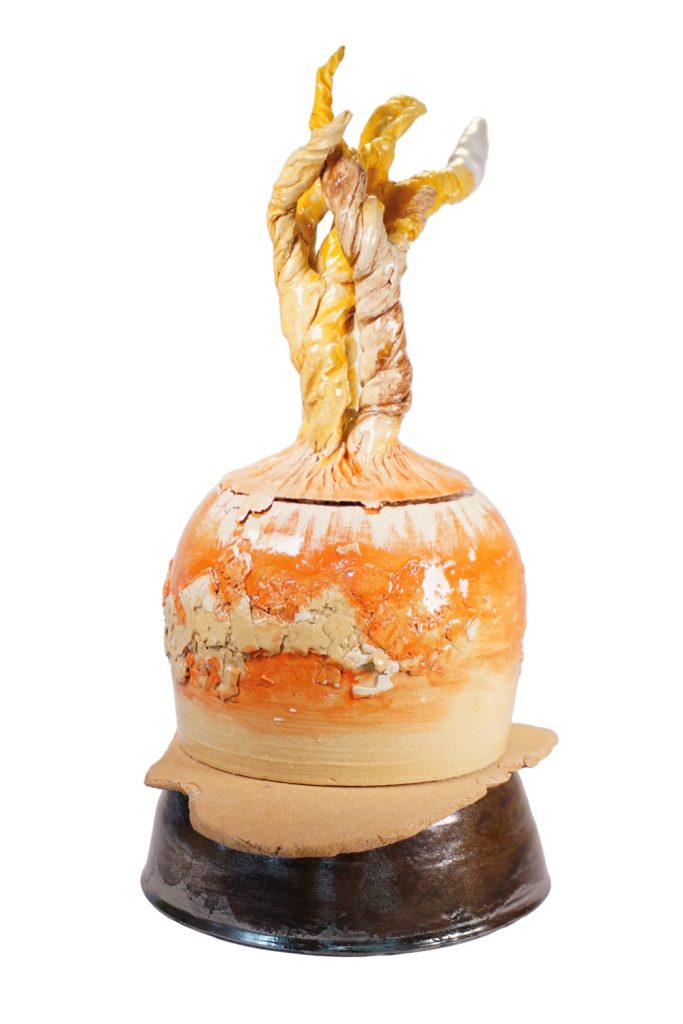
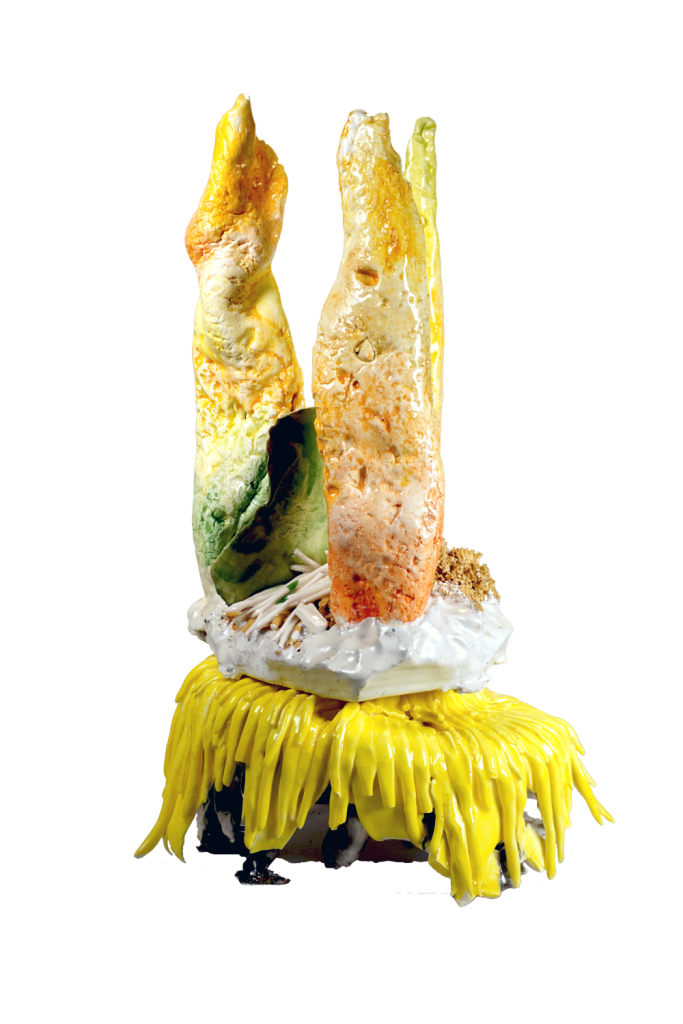
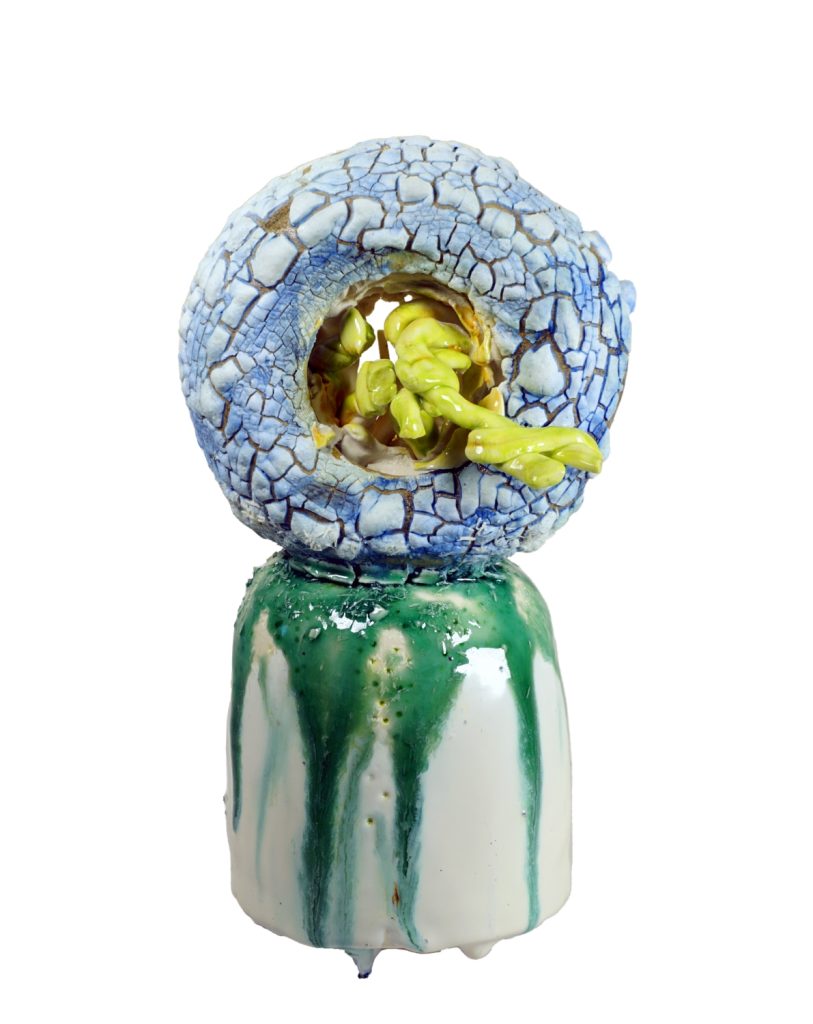
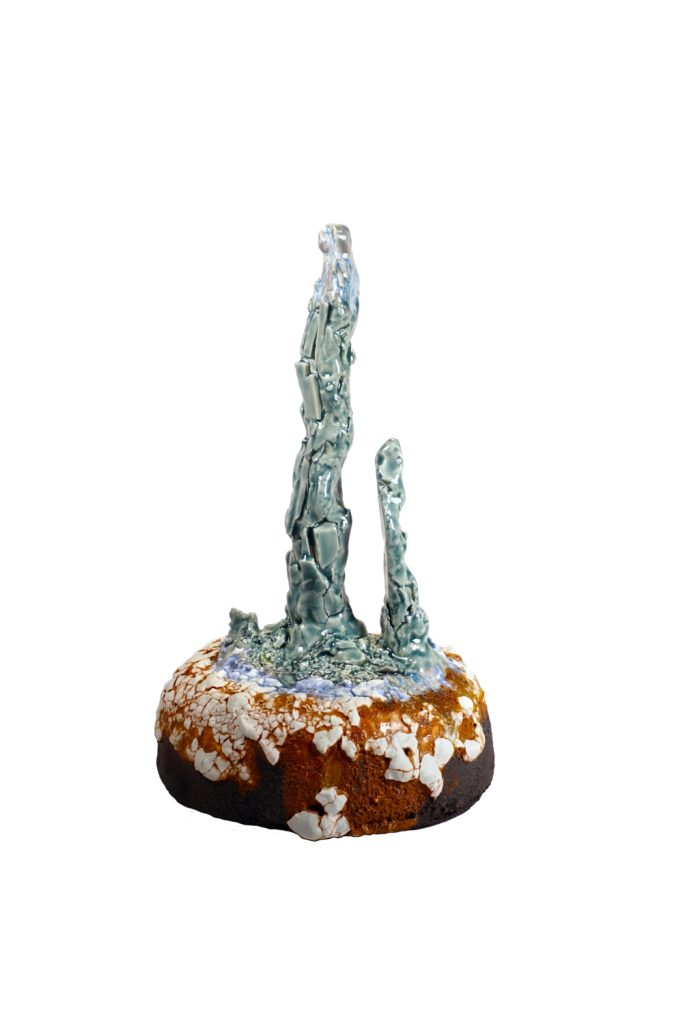
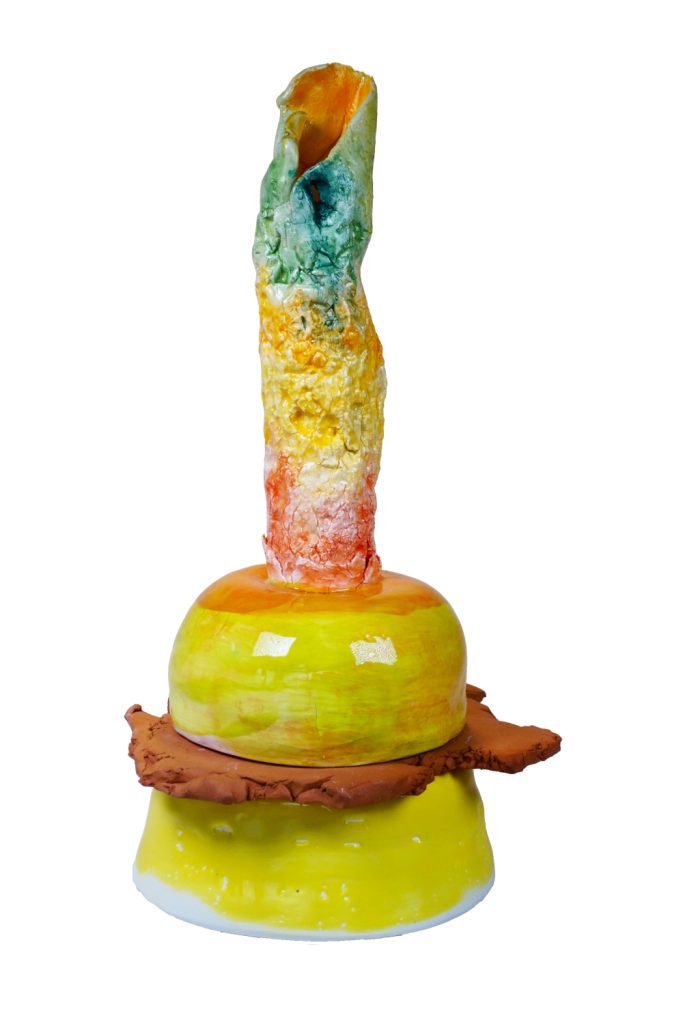
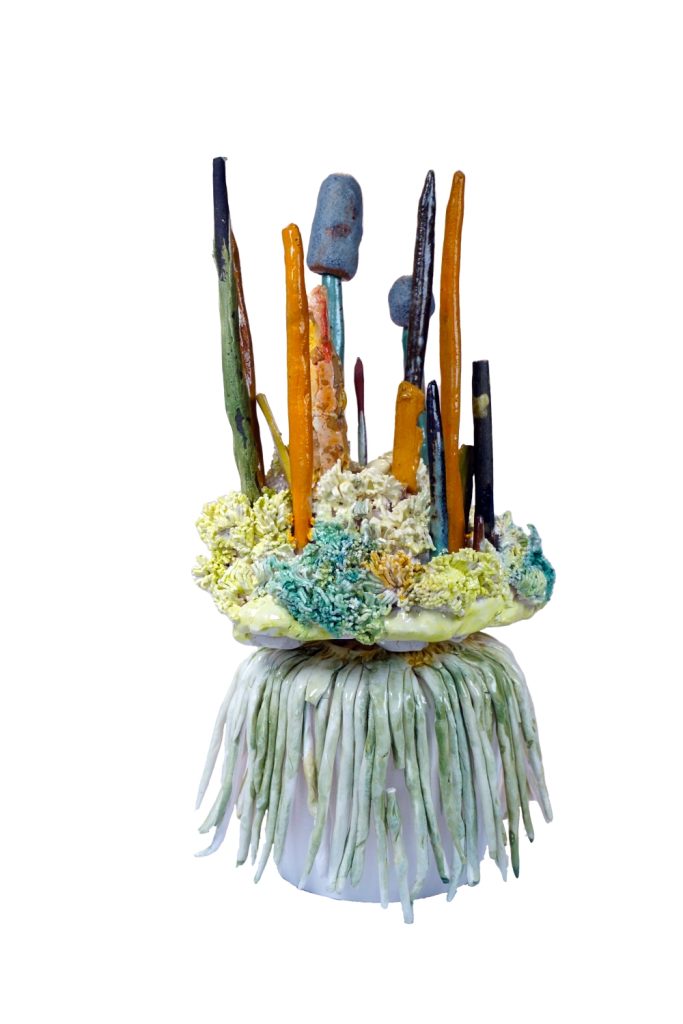
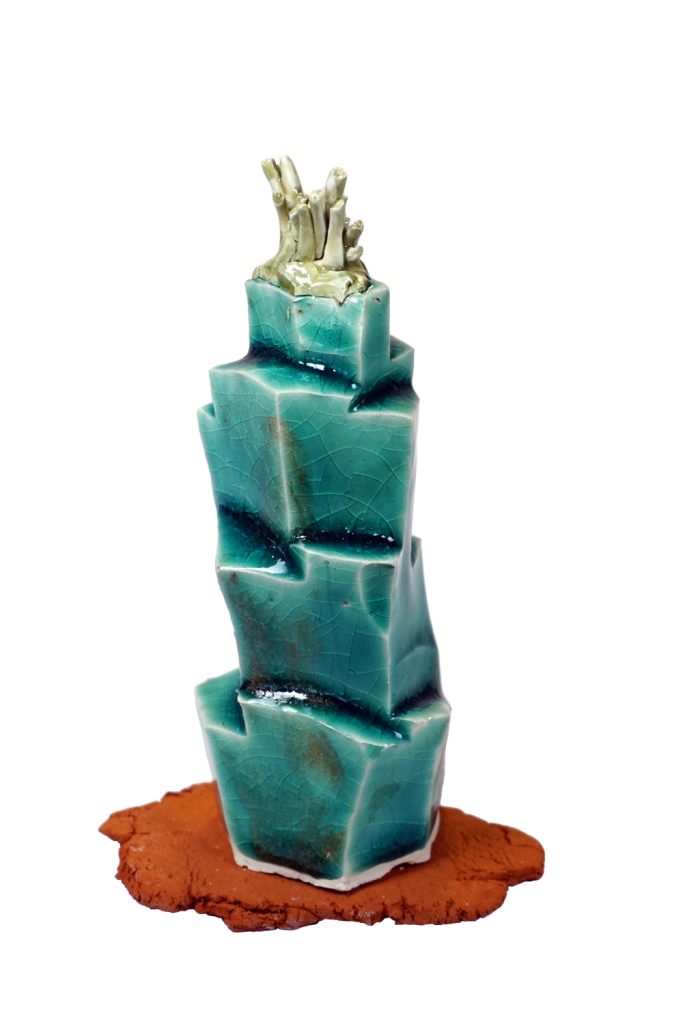
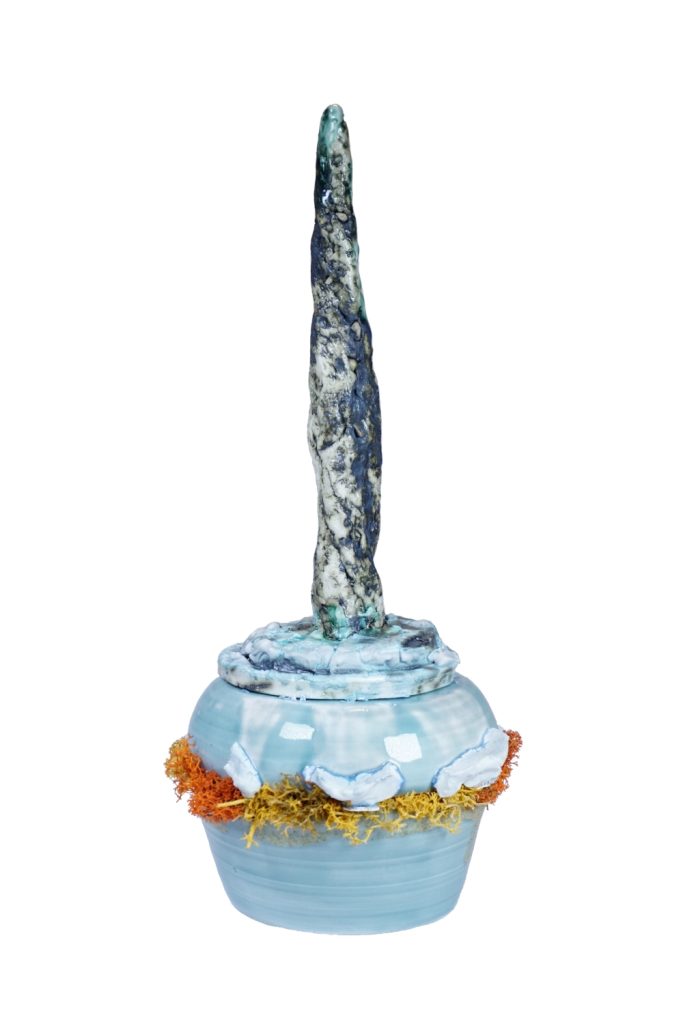
Julia Ellen Lancaster: Rooted, 2023
The clay sculptures that form Lancaster’s series, Rooted, represent monuments to the Poplars that formerly breathed life into the area, both literally and figuratively. The work is made and re-made, being layered and assembled from clay and fragments. The pieces work together as signifiers of continuous change and adaptation, those of the Borough’s inhabitants, both human and in nature.
Inhabitants throughout the Borough attempt to encourage and nurture their own miniature gardens, often reflecting the diverse character of their origins. Space is limited and some may only be a handful of plants struggling to sprout in a patch of meagre soil, but each resemble an attempt to create some kind of solace in a sometimes harsh existence, carving out territory they can call home.
Rooted at Poplar Union Arts Centre
By Rose Thompson
Rooted, the recent exhibition of work by sculptor Julia Ellen Lancaster, tells the story of the London borough of Poplar’s namesake – the poplar tree. The black poplar, which once flourished in the area, has now largely vanished from sight and is considered the most endangered native timber tree in Britain. But what remains of the underground networks that would have once allowed these trees to communicate with one another? In this new body of work, Lancaster reimagines a world where new forms of life emerge from the hidden network of trees. Intrinsically linked with the ground, these gnarly, sculptural forms surface as sedimentary rocks that could have fused together over millennia, as if carried along by the nearby Thames and Lea rivers, with fungi-forms emerging from between the rocks.
At the centre of Lancaster’s work is the material. Partially sourced directly from the earth by the artist, these works combine clay, minerals and rocks in their raw form. Concerned by the environmental impacts of ceramic production, Lancaster throws nothing away, reincorporating detritus and rubble from the studio floor back into her sculptures. Often her works are left unfired so they shift organically and manipulate over time – sometimes by the hand of the artist, sometimes by the whim of the material. In allowing these forms to alter themselves, Lancaster draws attention to the fragile and transient nature of clay as both material and property of soil.
Lancaster trained as an artist but has no formal education as a ceramicist. As a result of being largely self-taught in this field her work is not bound by the limitations traditionally held by ceramics. She uses the language of clay as a starting point, manipulating the material to its boundaries by introducing rocks and minerals, as well as exposing the works to extreme heat. This unorthodox approach causes the clay to crack and melt in unexpected ways, forming organic organisms on the surfaces. It’s a practice that comes with a great deal of risk and hence a great deal of acceptance of failure. This is wholly in line with the artist’s willingness to sit with the unresolved, work to a continuous unravelling, embracing the shadow self. Those works that do exist beyond the process that takes place in the studio, hold so much potency and are all the more compelling for their flaws, imperfections and idiosyncrasies.
Rooted explored Lancaster’s interest in embedding her work in a geographical time and place intrinsically linked with the history of a city or a place. The works respond to the absence of the tree in the urban landscape, creating monuments to Poplar.
Rooted took place at Poplar Union Arts Centre from April 1 – May 26, 2023.
Rose Thompson is Assistant Curator at the Royal Academy of Arts. Previous exhibitions include William Kentridge and David Hockney, and she is currently working on the upcoming Herzog & de Meuron exhibition. She has worked in a number of editorial and curatorial roles at contemporary arts institutions including Afterall, the Institute of Contemporary Arts, Whitstable Biennale and Thyssen-Bornemisza Art Contemporary, and was Associate Lecturer on the MA Curating programme at the University of Kent.



